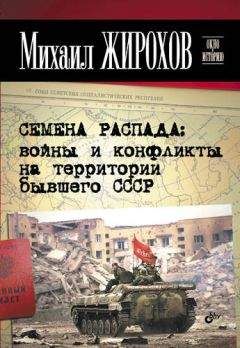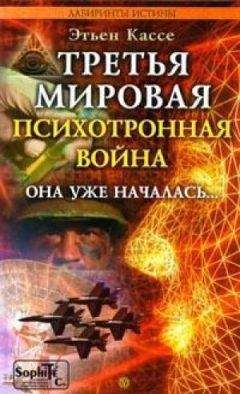Adam Makkai - Словарь американских идиом: 8000 единиц
[thunder] See: BLOOD AND THUNDER, STEAL ONE’S THUNDER.
[thus and so] also [thus and thus] {adv. phr.} In a particular way; according to directions that have been given. •/The teacher is very fussy about the way you write your report. If you don’t do it thus and so, she gives you a lower mark./
[thus far] See: SO FAR.
[ticket] See: SPLIT TICKET, STRAIGHT TICKET, THE TICKET, WALKING PAPERS also WALKING TICKET.
[tickle pink]{v. phr.}, {informal} To please very much; thrill; delight. Usually used in the passive participle. •/Nancy was tickled pink with her new dress./
[tickle to death] See: TO DEATH.
[tick off]{v.} 1. To mention one after the other; list. •/The teacher ticked off the assignments that Jane had to do./ 2. To scold; rebuke. •/The boss ticked off the waitress for dropping her tray./ 3. To anger or upset. — Usually used as ticked off. •/She was ticked off at him for breaking their dinner date again./
[tide] See: TURN THE TIDE.
[tide over]{v.} To carry past a difficulty or danger; help in bad times or in trouble. •/He was out of work last winter but he had saved enough money to tide him over until spring./ •/An ice cream cone in the afternoon tided her over until supper./ Compare: SEE THROUGH.
[tide turn] See: TURN THE TIDE.
[tidy sum]{n. phr.} A large amount of money. •/The Smith’s big new home cost them a tidy sum./ Compare: PRETTY PENNY.
[tie] See: FIT TO BE TIED.
[tie down]{v.} To keep (someone) from going somewhere or doing something; prevent from leaving; keep in. •/Mrs. Brown can’t come to the party. She’s tied down at home with the children sick./ •/The navy tied the enemy down with big gunfire while the marines landed on the beach./ •/I can’t help you with history now! I’m tied down with these algebra problems./
[tied to one’s mother’s apron strings] Not independent of your mother; not able to do anything without asking your mother. •/Even after he grew up he was still tied to his mother’s apron strings./
[tie in]{v.} To connect with something else; make a connection for. — Often used with "with". •/The teacher tied in what she said with last week’s lesson./ •/The English teacher sometimes gives compositions that tie in with things we are studying in other classes./ •/The detectives tied in the fingerprints on the man’s gun with those found on the safe, so they knew that he was the thief./
[tie-in]{n.} A connection; a point of meeting. •/John’s essay on World War II provides a perfect tie-in with his earlier work on World War I./
[tie in knots]{v. phr.} To make (someone) very nervous or worried. •/The thought of having her tooth pulled tied Joan in knots./ •/The little boy’s experience with the kidnapper tied him in knots and it was hard for him to sleep well for a long time./
[tie into] See: LACE INTO.
[tie one’s hands]{v. phr.} To make (a person) unable to do anything. — Usually used in the passive. •/Since Mary would not tell her mother what was bothering her, her mother’s hands were tied./ •/Charles wanted to help John get elected president of the class, but his promise to another boy tied his hands./ •/Father hoped Jim would not quit school, but his hands were tied; Jim was old enough to quit if he wanted to./
[tie the knot]{v. phr.}, {informal} To get married; also to perform a wedding ceremony. •/Diane and Bill tied the knot yesterday./ •/The minister tied the knot for Diane and Bill yesterday./
[tie up]{v. phr.} 1. To show or stop the movement or action of; hinder; tangle. •/The crash of the two trucks tied up all traffic in the center of town./ •/The strike tied up the factory./ 2. To take all the time of. •/The meeting will tie the President up until noon./ •/The Senate didn’t vote because a debate on a small point kept it tied up all week./ •/He can’t see you now. He’s tied up on the telephone./ 3. To limit or prevent the use of. •/His money is tied up in a trust fund and he can’t take it out./ •/Susan tied up the bathroom for an hour./ 4. To enter into an association or partnership; join. •/Our company has tied up with another firm to support the show./ 5. To dock. •/The ships tied up at New York./ 6. {slang} To finish; complete. •/We’ve talked long enough; let’s tie up these plans and start doing things./
[tie-up]{n.} A congestion; a stoppage of the normal flow of traffic, business or correspondence. •/There was a two-hour traffic tie-up on the highway./ •/No pay checks were delivered because of the mail service tie-up./
[tight] See: SIT TIGHT.
[tight end]{n.} An end in football who plays close to the tackle in the line. •/The tight end is used to catch passes but most often to block./ Contrast: SPLIT END.
[tighten one’s belt]{v. phr.} To live on less money than usual; use less food and other things. •/When father lost his job we had to tighten our belts./ Often used in the expression "tighten one’s belt another notch". •/When the husband lost his job, the Smiths had to do without many things, but when their savings were all spent, they had to tighten their belts another notch./
[tighten the screws]{v. phr.} To try to make someone do something by making it more and more difficult not to do it; apply pressure. •/When many students still missed class after he began giving daily quizzes, the teacher tightened the screws by failing anyone absent four times./
[tight-lipped]{adj.} A taciturn person; one who doesn’t say much. •/The witness was tight-lipped about what she saw for fear of physical retaliation by the mob./
[tight money]{n. phr.} The opposite of inflation, when money is hard to borrow from the banks. •/The government decided that tight money is the way to bring down inflation./
[tight squeeze]{n. phr.} A difficult situation; financial troubles. •/The Browns aren’t going out to dinner these days; they are in a tight squeeze./
[tightwad]{n. phr.} A stingy person. •/My father is such a tightwad that he won’t give me an allowance./
[Tijuana taxi]{slang}, {citizen’s band radio jargon} A police car. •/I’ve got a Tijuana taxi in sight./
[till] See: ROB THE TILL or HAVE ONE’S HAND IN THE TILL.
[till the cows come home]{adv. phr.} Until sunset; until the last. •/The women in the country used to sit in the spinning room making yarn out of skeins of wool, usually till the cows came home./
[till the last gun is fired] or [until the last gun is fired] {adv. phr.} Until the end; until everything is finished or decided. •/Fred always liked to stay at parties until the last gun was fired./ •/The candidate didn’t give up hope of being elected until the last gun was fired./
[tilt] See: FULL TILT.
[tilt at windmills]{v. phr.}, {literary} To do battle with an imaginary foe (after Cervantes' Don Quixote). •/John is a nice guy but when it comes to departmental meetings he wastes everybody’s time by constantly tilting at windmills./
[time] See: ABOUT TIME, AGAINST TIME, AT A TIME, AT ONE TIME, AT THE SAME TIME, AT TIMES, BEHIND THE TIMES, BEHIND TIME, BIDE ONE’S TIME, BIG TIME, EVERY TIME ONE TURNS AROUND, FOR THE TIME BEING, FROM TIME TO TIME, GIVE A HARD TIME, HAVE A TIME, HIGH TIME, IN GOOD TIME, IN NO TIME, IN THE NICK OF TIME, IN TIME, KEEP TIME, LESS THAN NO TIME, LIVE ON BORROWED TIME, MAKE TIME, MARK TIME, ONCE UPON A TIME, ON ONE’S OWN TIME, ON TIME, PASS THE TIME OF DAY, SMALL-TIME, TAKE ONE’S TIME, TWO-TIME.
[time and again] or [time and time again] {adv.} Many times; repeatedly; very often, •/I’ve told you time and again not to touch the vase!/ •/Children are forgetful and must be told time and time again how to behave./
[time and a half]{n. phr.} Pay given to a worker at a rate half again as much as he usually gets. •/John got time and a half when he worked beyond his usual quitting time./ •/Tom gets one dollar for regular pay and a dollar and a half for time and a half./
[time is ripe] The best time has come for doing something. •/The Prime Minister will hold elections when the time is ripe./ •/Lee saw his mother was upset, so he decided the time was not ripe to tell her about the broken window./
[time of day] See: NOT TO GIVE ONE THE TIME OF DAY.
[time off]{n. phr.} A period of release from work. •/If I had some time off this afternoon, I would finish writing the letters I promised to my family./
[time of one’s life]{n. phr.} A very happy or wonderful time. •/John had the time of his life at the party./ •/I could see that she was having the time of her life./
[time out]{n. phr.} Time during which a game, a lecture, a discussion or other activity is stopped for a while for some extra questions or informal discussion, or some other reason. •/He took a time out from studying to go to a movie./ •/The player called time out so he could tie his shoe./ •/"Time out!" — The students said, "Could you explain that again?"/
[tin ear]{n. phr.} 1. A lack of sensitivity to noise. •/The construction noise doesn’t bother Fred; he’s got a tin ear./ 2. A lack of musical ability; state of being tone deaf. •/People with a tin ear make poor choir members./
[tingle] See: SPINE-TINGLING.
[tinker’s damn] See: NOT WORTH A TINKER’S DAMN.
[Tin Pan Alley]{n. phr.} The pop music industry. •/What kind of music will Tin Pan Alley come up with this year?/
[tip] See: AT THE TIP OF ONE’S TONGUE, FROM TIP TO TIP.
[tip off]{v.}, {informal} To tell something not generally known; tell secret facts to; warn. •/The class president tipped off the class that it was the superintendent’s birthday./ •/The thieves did not rob the bank as planned because someone tipped them off that it was being watched by the police./ Compare: PUT WISE.
[tip the balance] See: TIP THE SCALES(2).
[tip the scales]{v. phr.}, {informal} 1. To weigh. •/Martin tips the scales at 180 pounds./ 2. or [tip the balance] To have important or decisive influence; make a decision go for or against you; decide. •/John’s vote tipped the scales in our favor, and we won the election./ Compare: TURN THE TIDE.
[tired] See: DEAD TIRED, SICK AND TIRED.
[tire out] See: WEAR OUT(2).
[tit for tat]{n. phr.} Equal treatment in return; a fair exchange. •/Billy hit me, so I gave him tit for tat./ •/I told him if he did me any harm I would return tit for tat./ •/They had a warm debate and the two boys gave each other tit for tat./ Compare: GET BACK AT, EYE FOR AN EYE AND A TOOTH FOR A TOOTH.
[to a conclusion] See: JUMP TO A CONCLUSION.
[to a crisp] See: BURN TO A CRISP.
[to a degree]{adv. phr.} 1. {Chiefly British} Very; to a large extent. •/In some things I am ignorant to a degree./ 2. Somewhat; slightly; in a small way; rather. •/His anger was, to a degree, a confession of defeat./ •/To a degree, Mary was to blame for Bob’s failing mathematics, because he spent much time with her when he should have been studying./
[to advantage]{adv. phr.} So as to bring out the good qualities of; favorably; in a flattering way. •/The jeweler’s window showed the diamonds to advantage./ •/The green dress showed up to advantage with her red hair./
[to a fault]{adv. phr.} So very well that it is in a way bad; to the point of being rather foolish; too well; too much. •/Aunt May wants everything in her house to be exactly right; she is neat to a fault./ •/Mary acts her part to a fault./ •/John carries thoroughness to a fault; he spends many hours writing his reports./
[to a halt] See: GRIND TO A HALT.
[to a large extent] See: IN GREAT MEASURE.



